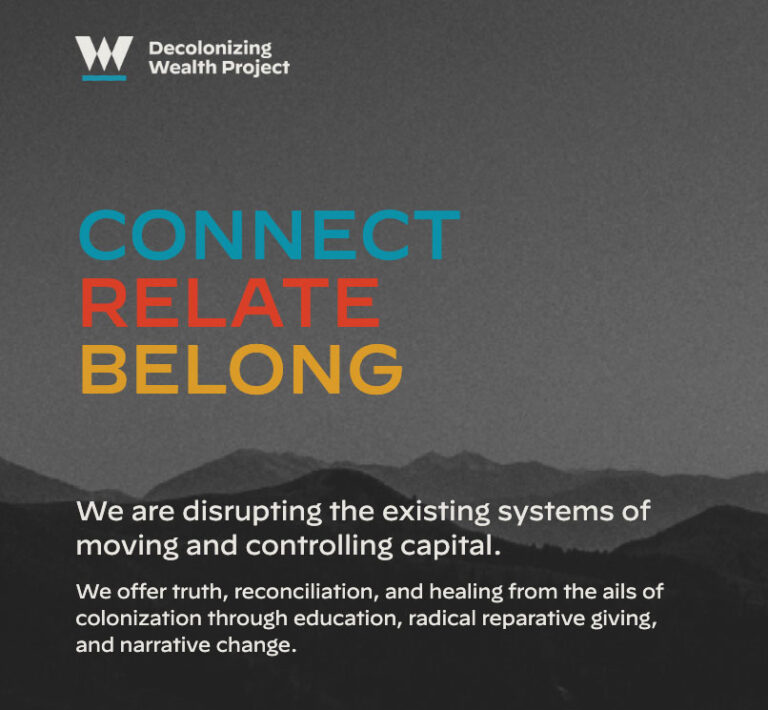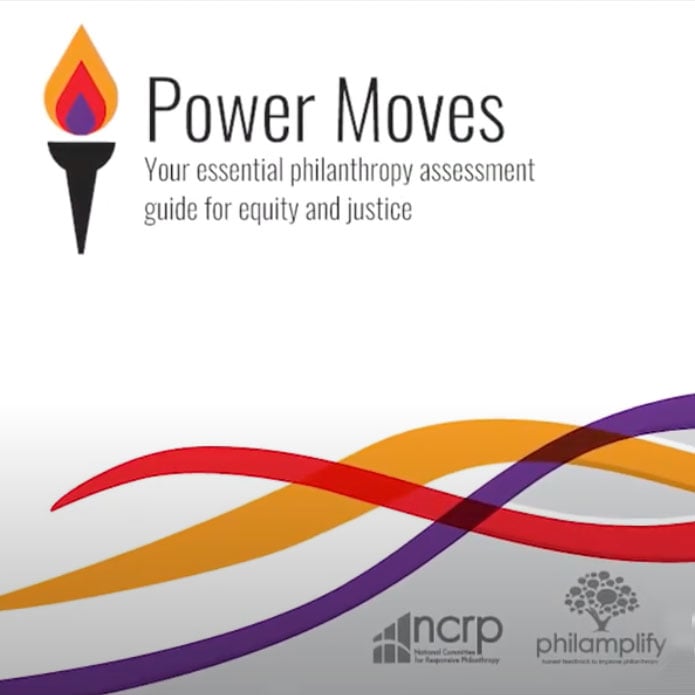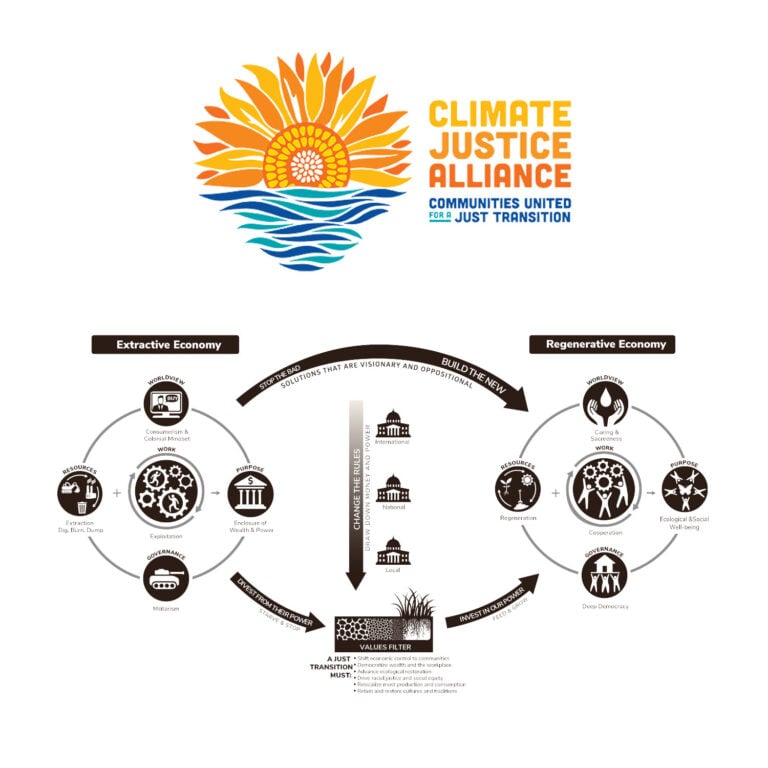Tools & Resources to Shift Power to Communities
Browse Menu
Looking at your role/function within your foundation.
What are listening practices that can shift power?
Assess how you are listening through a set of reflection questions.
What power does your foundation hold and how does it wield it? What spoken or unspoken ideas about power are at play at your foundation?
In order to listen to communities in authentic and non-extractive ways, it’s critical that your foundation engage in its own reflection on the institutional sources of power and how it uses that power.
Q: What are the sources of your institution’s financial wealth?
Q: What are the ideas about what power is and how it operates? For example, is power thought of as primarily about control over others, or something that is generated in relationship with others? Is it considered inherently good or bad, neither or both? Dig deep, below the official ways your foundation might document its definition of power, to the underlying mental models that can be revealed through shared assumptions.
Q: What are the formal and informal ways your foundation uses its institutional power?
Q: How does your foundation collaborate or coordinate with other funders on your efforts to listen to shift power?
Q: How is your foundation’s power analysis evolving over time?
Get going with these tools and resources
This report offers a short discussion of what power sharing in philanthropy means and examples of the kinds of internal- and external-facing practices foundations can implement to reorient their relationship with the people and communities they seek to serve.
Centered around the ideas in Edgar Villanueva’s book exploring the colonial dynamics at play in philanthropy, resources here, including a toolkit companion to the book, and a “guided journal for decolonizing your relationship with money,” can help you and your foundation think about, shift, and deploy power in new ways.
Use this self-assessment toolkit to determine how well your foundation is building, sharing, and wielding power and to identify ways to transform your programs and operations for lasting, equitable impact.
This tool guides conversations around what is or isn’t being done to center community in your organization.
Consider this set of principles, processes, and practices that are designed to transition whole communities, building thriving economies that provide dignified, productive, and ecologically sustainable livelihoods; democratic governance, and ecological resilience.
Get inspired by what other funders are doing
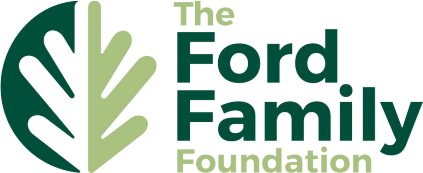
When The Ford Family Foundation learned that families in one of the Oregon towns where it works wanted stronger pathways to kindergarten for their children, it did not jump to a quick decision, such as to build a new preschool. Instead, the funder spent years supporting relationship-building in the community, creating dialogue to understand barriers around school readiness, and building trust and muscles for community organizing.
“If a new preschool was a solution we had prescribed for the community, would families really want to take their kids there? Would the town have rallied?” asked Kara Inae Carlisle, president and CEO of The Ford Family Foundation. “What Yoncalla did, through their own process, was begin to think about what they wanted for their community, what they wanted for their kids, how they wanted the school to operate.”
Pointing to Yoncalla Early Works, the community hub providing preschool and other services that was eventually built with the foundation’s support, Carlisle said she recognizes that the foundation could not have created it alone, or by simply providing funding. “We can’t grant-make our way out of any of these issues,” she said. Instead, for every effort the foundation takes on, she said, “we think about what power we want to hold and what we don’t want to hold,” and where the foundation can build capacity among others, especially by helping to activate the sometimes “invisible capital” within communities.


In 2016, board members at Weissberg Foundation participated in “Putting Racism on the Table,” a learning series led by the Washington Regional Association of Grantmakers under the leadership of Tamara Copeland, who now serves as one of the foundation’s trustees. They also hired the foundation’s first professional executive director. Since then, the board named racial equity as its North Star, and completed the National Center for Responsive Philanthropy’s Power Moves curriculum.
Through the work, Weissberg has built clarity around the need to shift power and to prioritize organizations led by and accountable to those most negatively impacted by racism. And it has adopted a four-part strategic plan focused on innovative grantmaking, investing for impact, internalizing racial equity, and influencing philanthropy.
The foundation has also explored its wealth origin story and identified harm that may have been caused in the creation of the foundation’s wealth. It has acknowledged that the commercial real estate investments that provided the basis for the foundation’s corpus, and helped transform Northern Virginia into the region it is today, may have contributed to the displacement of Black, Indigenous, People of Color, and low-income communities. And while the effort to explore its wealth origin story is ongoing, the foundation’s support of economic power building is a nod to the ties between land, land ownership, and wealth building from pre-history through today, and an acknowledgement of Virginia’s history of Native land theft and public and private destruction of Black wealth related to home and land ownership. The foundation works with consultants to continue developing skills for talking about power and racial inequity, and for interacting productively across lines of difference.
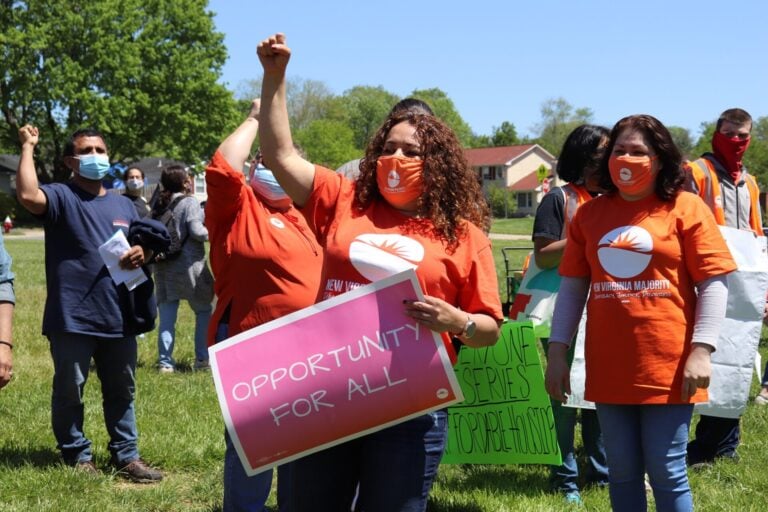

“Power Sharing Framework, Volume 2,” by the Race & Equity In Philanthropy Group, facilitated by Marga Incorporated, offers profiles of nine foundations, highlighting how they define power sharing, what power-sharing practices they are pursuing, and the impact, challenges, and learnings associated with this work. Included in the report are Bush Foundation, The California Wellness Foundation, Cypress Fund, Jacob & Terese Hershey Foundation, The James Irvine Foundation, Mortenson Family Foundation, Omaha Community Foundation, T. Rowe Price Foundation, and Winthrop Rockefeller Foundation.
Explore this menu to spark the changes you want to see.
Mix and match to find the examples, resources, and reflections best suited to help you and your organization shift power to the people and communities at the heart of your work.
How to use the menu
Funders are moving toward listening and participatory practices at different rates and from different starting points and perspectives. We also know that shifting power is not easy work and requires a strong internal commitment and continuous learning. It’s best to be clear on your organization’s motivations, capabilities, and goals. As you engage with this menu, consider your funding practices, operations, policies, and values — and then identify where change will best serve your foundation and the people and communities you seek to serve.
We recommend examining the menu’s resources and examples with a willingness to turn kernels of ideas into something right for you. No matter where you start or the path you travel through this menu, we suggest spending time on the reflection questions, perhaps engaging colleagues to help you and your organization better understand and prepare for what it means to listen to shift power.
Our Participatory Philanthropy Toolkit, included as a resource in the menu, has a Funder Readiness Assessment that can be adapted to different listening practices and help prepare you to make changes in your priorities and practices.
How we choose the items
We offer a range of examples and resources because there are no one-size-fits-all solutions; and we share them in a menu format so you can choose what’s interesting or relevant to you and your foundation. We don’t rank the practices or the organizations employing them or intend to signal that any featured funder has met its listening goals across the board. Each example represents only a moment in time — a practice one of your peers told us (or an intermediary) about, and that we hope might inspire you to enhance your own listening work.
Similarly, we do not rank the resources, though we did select them based on a set of criteria, including:
- We and/or our partners have personally used the resource and find it is high-quality, promotes impact, and aligns with our power analysis
- The resource is widely and publicly available (not just to paid members) and, ideally, accessible to people with disabilities
- The resource is relevant to, and includes applicable lessons for, a variety of types of funders
- The resource is as evergreen as possible
New resources are always coming online. We hope that the ones we’ve included are helpful while also sparking your curiosity and helping you forge an ongoing relationship with the creators and other aligned efforts.
We are always looking to add more funder listening examples and more resources. Please reach out to our communications manager, Debra Blum, or take a few minutes to share your stories and ideas on our Lift Up Listening online form.
Have questions about the menu or ideas for resources or examples?
Please reach out to our communications manager, Debra Blum.

